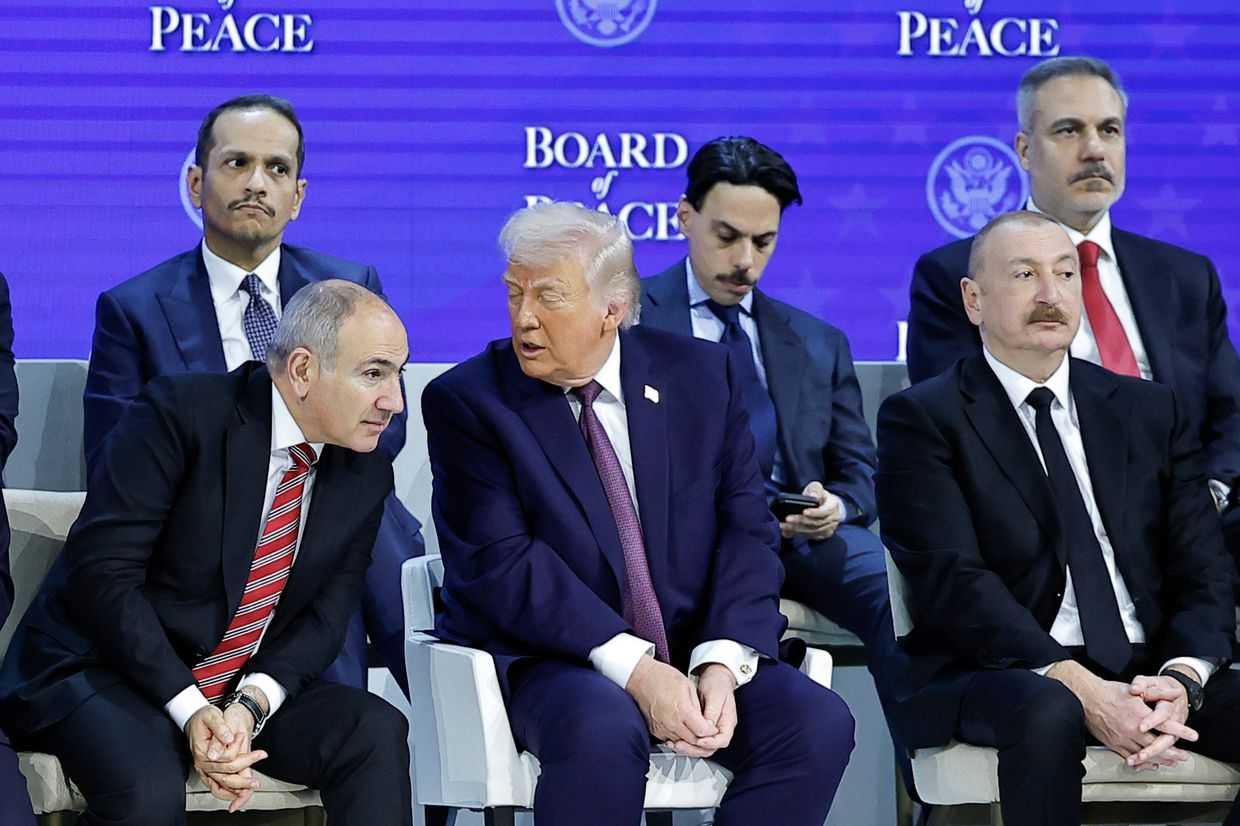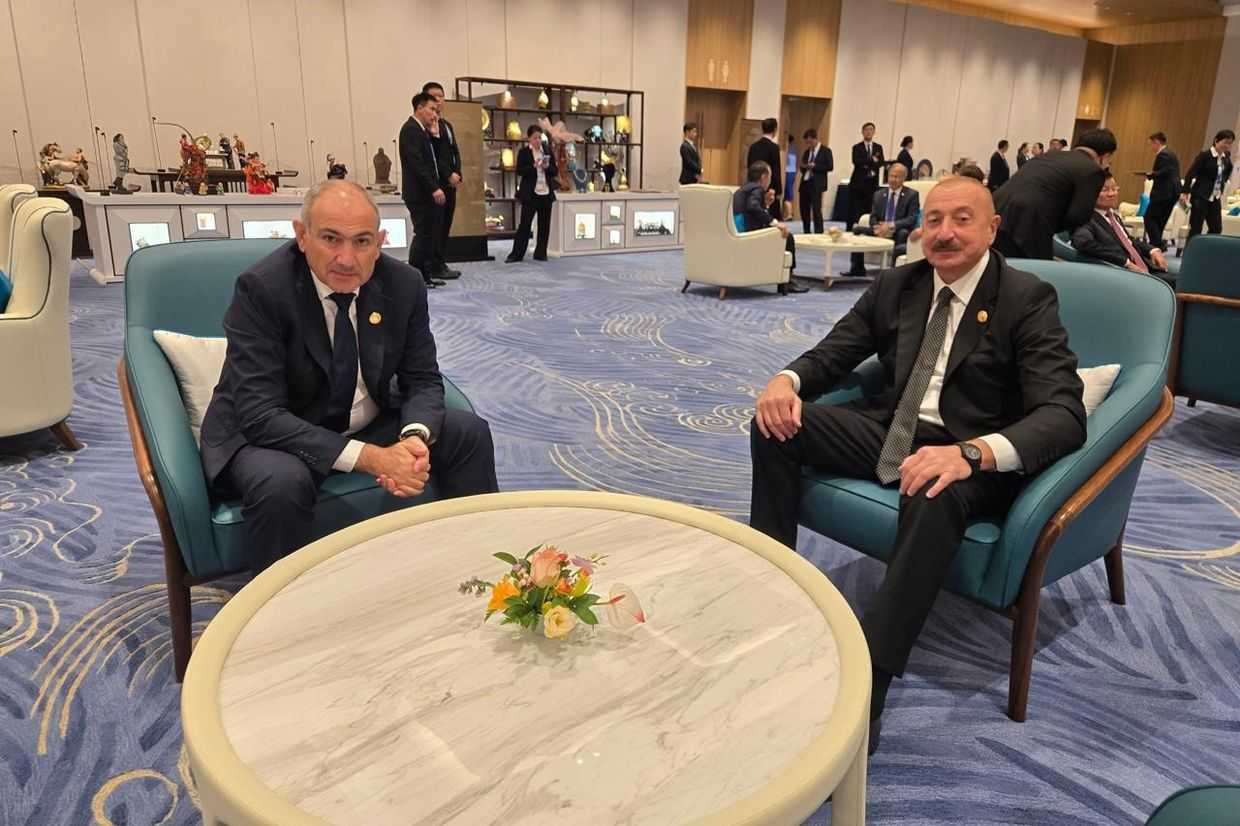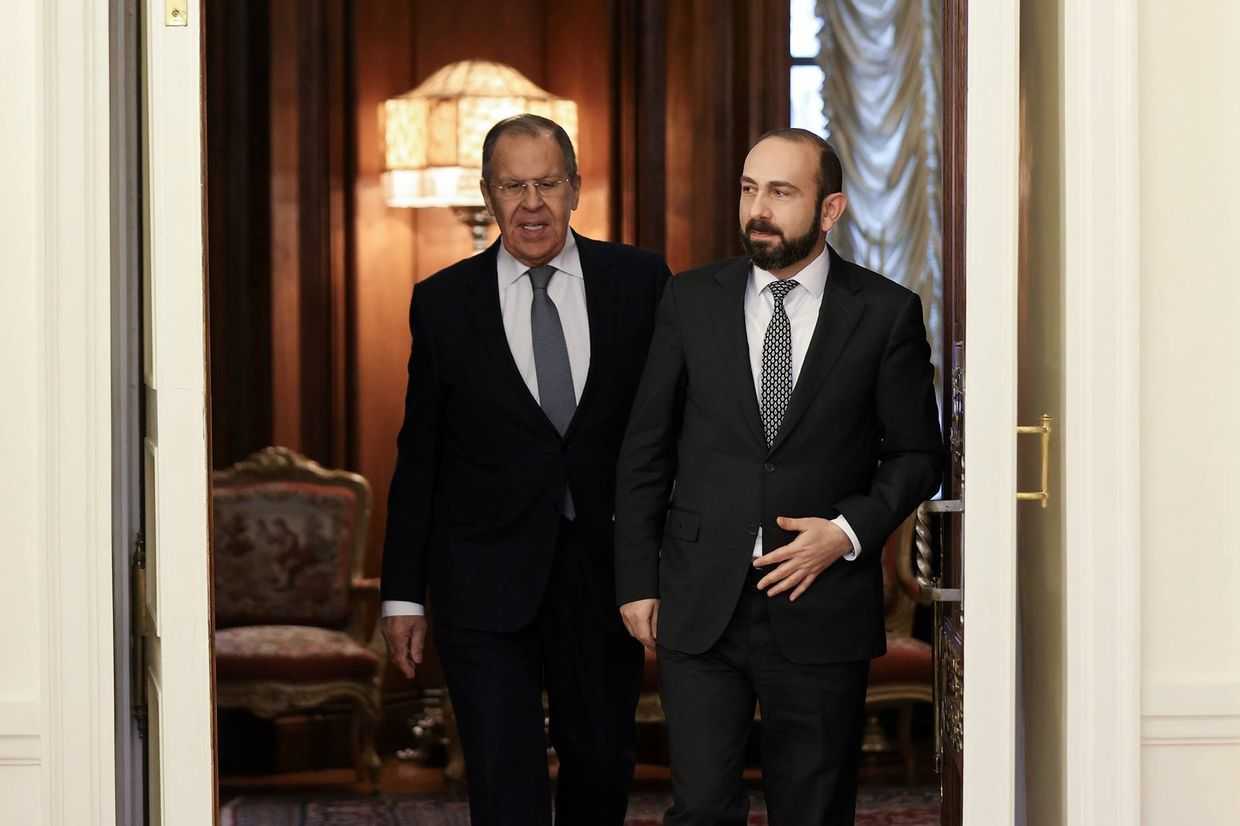
Armenia’s new parliament has held its first session amidst protests, boycotts, and accusations from the opposition.
The largest opposition faction, Robert Kocharyan’s Armenia Alliance, attended Monday’s sitting wearing T-shirts printed with photos of arrested members and supporters. Most of those pictured were the mayors of Armenian cities and villages and two were elected MPs.
Throughout the sitting, opposition MPs repeatedly attempted to disrupt proceedings, including by banging on their desks as members of the ruling party attempted to speak.
Despite the tensions, after around six hours, parliament reelected Alen Simonyan from the ruling Civil Contract Party as Speaker of Parliament.
Opposition MPs walked out before the vote was announced, having nominated the two arrested MPs as symbolic candidates for the post.
The Armenia Alliance had demanded that parliament not resume until they were released and present, stating that anything else would be a ‘shame on Parliament’.
One of the arrested MPs is the executive director of the church-led Izmirlyan Medical Centre, who appeared in a tape appearing to force his employees not to vote for Pashinyan’s party. The second is the Mayor of the city of Goris, a border city in Armenia’s Syunik province. He was charged with vote-buying.
[Read more: Opposition officials hit by wave of resignations and arrests in Armenia]
Armenia Alliance MP Aram Vardevanyan stated that detaining members of parliament was illegal and that it could be considered ‘squashing the Constitution’.
MPs in Armenia enjoy immunity from prosecution unless parliament votes to strip them of it. However, the ruling party has insisted that as the two were arrested before the new parliament was formed, they were not technically MPs at the time.
‘The Parliament can’t influence the judiciary’, Vladmir Vardanyan, a Civil Contract MP said on Monday. He called on the opposition to stop their boycott and follow the advice of the President and the Catholicos and start the work of Parliament.
During Monday’s session, law enforcement bodies were carrying out an enhanced service, stopping journalists from moving freely in the Parliament. According to the Parliament’s staff, the security service will be back to normal in Tuesday’s sitting.
Earlier on Monday, President Armen Sarkissian signed a decree appointing Nikol Pashinyan as Prime Minister.
Despite the opposition boycott and challenges to the election results, the results of 20 June’s elections have been upheld by the Constitutional Court. Pashinyan was appointed without an election in Parliament since he was the candidate of the faction with a parliamentary majority.
Shortly after his formal appointment, Pashinyan began to nominate a new government, making several visible changes, including in ministries that have faced waves of resignations since the Second Nagorno-Karabakh war, such as the Defence Ministry.
Pashinyan’s Civil Contract Party won an overwhelming majority in 20 June’s election. Two opposition blocs were elected, the Armenia Alliance and the I Have Honour Alliance, led by the country’s second President Robert Kocharyan and Pashinyan’s former ally Artur Vanetsyan, respectively.
Kocharyan has himself refused to take up his seat in Parliament.








